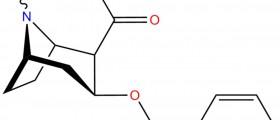Ketamine is a short-acting anesthetic with hallucinogenic and analgesic properties. It can be used as a general anesthetic for humans but it is more commonly used in veterinary medicine for pet surgeries. The street names for this drug are Special K, Vitamin K and Valiums K.

Usage and effects of ketamine
Ketamine is prepared from the prescribed injectable drug through the process of evaporation and grinding. It is used in form of powder that can be snorted or swallowed, sometimes smoked too.
As per the effects of ketamine, which at one point has become a staple drug at rave parties and similar events, they are related to the dose and range from mild, dreamy intoxication to delirium. Ketamine usually involves inability to feel the pain and often the inability to move. People who use ketamine as a recreational drug often do not have any recollection of what happened while they were under the influence and they are often unable to speak or hear others who are in the same room.
Ketamine users often describe the “trips” as experiences of alternate planes of existence, revelations regarding the past and the future, feelings of omniscience or omnipresence or “being one with the universe”.
Side effects of ketamine
Ketamine can cause very serious problems, both physical and mental, such as delirium, amnesia, respiratory problems, paralysis, panic, rage, hysteria and paranoia. Because the users cannot feel pain, they are at risk of hurting themselves. Large doses of ketamine have the same effect as any other general anesthetic, which involves the psychedelic or other effects, just plain unconsciousness. Continuous abuse of ketamine can be fatal as it may lead to respiratory failure and cardiac arrest.
Ketamine sold on the streets is often mixed with other drugs, such as heroin, ecstasy and cocaine and those combinations not only have minimal psychedelic effect but they are also potentially fatal.
Dependency and withdrawal
Ketamine mostly causes psychological addiction, but its physical hold is not to be neglected either. If used frequently, ketamine causes dependence and the users gradually become tolerant to it, requiring always larges doses, which is very dangerous.
It seems that even in chronic users ketamine does not cause withdrawal symptoms, although some have reported problems such as twitching, spasms, tension, nervousness and restlessness. It is recommended that chronic ketamine users stop taking it under medical supervision, because sudden cessation of ketamine use, just like any other drug, may cause unexpected effects.
Treatment for ketamine addiction is best if done in detox facilities with professional medical staff, or in support groups, guided by certified therapists or counselors.

















Your thoughts on this
Loading...